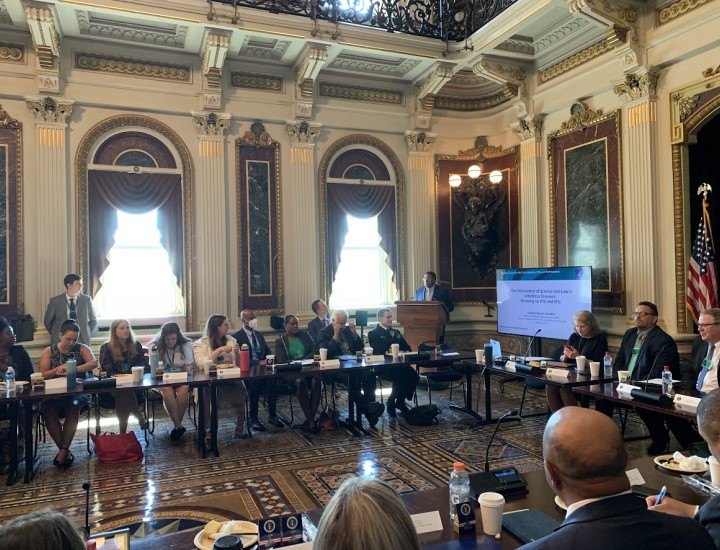ONAP Listening Session on HIV Criminalization (from HIV.gov, Published: February 02, 2022)
“On Tuesday, January 25, 2022, the White House’s Office of National AIDS Policy (ONAP) convened a virtual listening session on HIV criminalization laws. The National HIV/AIDS Strategy (NHAS) calls for repeal and reform of state HIV criminalization laws as a strategy to reduce HIV-related stigma and discrimination and the complex barriers they pose for people with or who experience risk for HIV.
The NHAS and CDC note that these laws have not increased disclosure and may discourage HIV testing, increase stigma against people with HIV, and exacerbate disparities. To end the HIV epidemic, public health, criminal justice, and legislative systems must work together to ensure that laws protect the community, are evidence-based and just, and support public health efforts. When a law meant to protect the public is not working as intended, is unjust, and may be hurting efforts to keep communities healthy, common solutions must be found to better meet public health and public safety goals.
The community members who participated were an experienced mix of legal, academic, and public health experts and included people living with HIV. Organizations represented included the Center for HIV Law and Policy, NASTAD, the O’Neill Institute for National and Global Health Law, the Sero Project, the Transgender Law Center, and the Williams Institute. Several colleagues from the White House staff joined along with representatives from the Department of Health and Human Services and the Department of Justice.
The community members shared their thoughts on ways to eliminate or reform outdated HIV criminalization laws as well as recommendations about who, specifically, needs to be informed and persuaded and what sources of information would be most effective. They also offered recommendations on actions that could be taken now by various stakeholders to help curtail or halt current prosecutions under HIV criminalization laws that exist in 35 states.”
